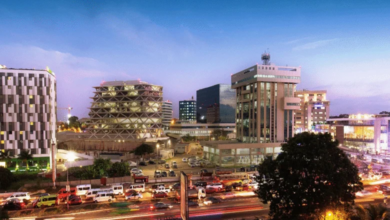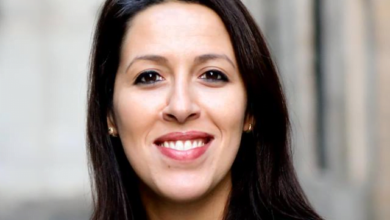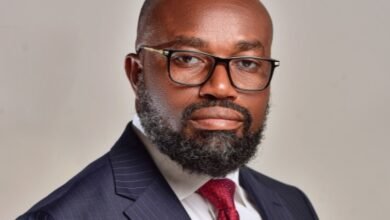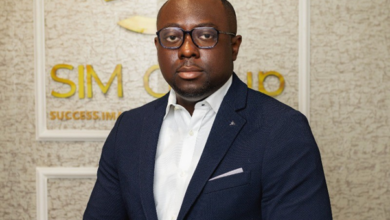USA-Africa: From Obamania to Trumphobia
The advent of Donald Trump at the head of the world’s leading country has shaken African chancelleries in the same way as those of the rest of the world, especially as very quickly his speeches have raised doubt in his future African policy. And yet, Donald Trump’s American-African policy should not go in the direction expected…
By Dounia Ben Mohamed
We still remember the election of Barack Obama in the White House, the first African-American in history, sparked a wave of hope across the continent. Obamania was short, while, for Obama’s US-African balance sheet, for many, this son of Kenyan migrant could have done better, the advent of Donald Trump at the head of the world’s largest country has shaken African chancelleries as well as those of the rest of the world, especially as his speeches quickly foreshadowed his future African policy.
« Our soldiers are fighting side by side to defeat terrorists and we are working together to enhance free, fair and mutual trade. »
The latest one has provoked outrage from his African counterparts. In a meeting with parliamentarians at the White House on immigration, Donald Trump described several African nations as « shitty countries ». Words certainly expressed off, but assumed. « Some politicians in Washington choose to fight for foreign countries, but President Trump will always fight for the American people, » said Raj Shah, a spokesman of the executive, in a statement. As such, Trump will send a letter on January 25¨to the African Heads of State meeting in Addis Ababa for the 30th African Union summit, in which he will ensure that the United States « deeply respect the Africans ». « Our soldiers are fighting side by side to defeat terrorists and we are working together to strengthen free, fair and mutual trade. » He will also announced that his Secretary of State, Rex Tillerson, would « be on an extended visit in March » to the continent.
But beyond the speeches, the first actions undertaken confirm the « Trump » approach. In September, the US president repealed the program which allowed 690,000 young people, who went to the United States illegally as children, to work and study legally while protecting them from deportation. Last January, in a gesture of action, and in keeping with his campaign promise to expel the 11 million immigrants to their countries of origin, he began sending 100 migrants back to Kenya and Somalia. Similarly, his first budget project, « America First », can be summarized as: less public aid, more business, which is true for the world as a whole, in particular Africa. Specifically, in this document, he announces his desire to reduce the endowment to the State Department and USAID, the agency for external assistance, by $ 10 billion. This will necessarily concern African countries. Starting with Ethiopia, the first African beneficiary of US aid (third worldwide), the endowments to development aid institutions including the World Bank and the African Development Bank should also be reduced by $ 650 million over three years as well as the United Nations, in the viewfinder of Donald Trump, while the US is the largest donor to peacekeeping missions (28%), three-quarters of which are dedicated to the continent, and it has already announced its withdrawal from the Green Climate Fund.
« For American companies, Africa has really become a place to invest – and they want to invest there. »
And yet, between two verbal diatribes, the American leader reveals who he is in fact: a business man. For example, during a luncheon held alongside the UN General Assembly in New York, with African leaders – South African Jacob Zuma and Nigerian Muhammadu Buhari – he admired Africa (which) has huge trade potential. He added: « I have plenty of friends going to your country to try to get rich. I congratulate you, they spend a lot of money. Above all, he said, « For American businesses, it’s really become a place to invest – and they want to invest there. » And it seems that Donald Trump, focusing on the economic war against China, is determined to encourage American companies to visit the African continent, where the influence of the Middle Kingdom is growing. An approach that should soon be confirmed by the fate of African Growth and Opportunity Act (Agoa), the free trade agreement signed in 2000 that facilitates the import of African goods in the US market, renewed by the US Congress until 2025. While Trump undoubtedly goes to the end of his public assistance and immigration projects, he is unlikely to revert to US economic interests, while, for example, one of his major trading partners is South Africa. Still according to the « America First » logic
60 million dollars dedicated to the G5 Sahel action
There might be a military rather than an economic turn, according to an approach already initiated. Indeed, while since the trauma of the Mogadishu Battle that resulted in the death of 18 GI’s, the American line is not to intervene directly on African soil, the Americans have never stopped conducting militarily operations in the continent, officially for training operations. In fact, as part of the American obsession to counter international terrorism of which one of the playgrounds is Africa. Thus, more than a thousand American Special Forces, as part of Socafrica, the more interventionist version of Africom, recently intervened in Central Africa to counter Boko Haram; in North and West Africa in the wake of the Libyan operation, or in East Africa to fight against the Shebabs, which remain the American priority. This little visible presence could evolve. The Americans, already engaged in peacekeeping missions in 26 African countries last year, contributed $ 60 million to G5 Sahel action. And, next to the US official bases, in the largest one in Djibouti, the Americans have set up « surveillance zones », by drone, like the unofficial base in southern Tunisia that serves as pre-post to operations conducted in Libya and in the Maghreb.
While waiting to see if the interventionist approach is confirmed on the military field, it appears that in democracy and human rights¨, Donald Trump will be much less interested than his predecessors. And some African leaders, currently in the hot seat, do not expect more from Uncle Sam…






